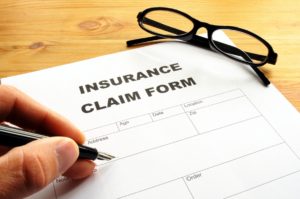 No one is immune to the threat of losing his or her home due to any number of possible hazards that could occur at any time. Even members of our own staff have gone through events that could’ve led to the loss of their home and possessions. This is a scary fact considering that a recent survey found that most homeowners were underinsured. Marshall & Swift/Boeckh, a leading insurance data services company, found that 66% of homeowners were insured with inadequate coverage by an average of 18%. The result is being underinsured on what could be their most valuable asset, their home.
No one is immune to the threat of losing his or her home due to any number of possible hazards that could occur at any time. Even members of our own staff have gone through events that could’ve led to the loss of their home and possessions. This is a scary fact considering that a recent survey found that most homeowners were underinsured. Marshall & Swift/Boeckh, a leading insurance data services company, found that 66% of homeowners were insured with inadequate coverage by an average of 18%. The result is being underinsured on what could be their most valuable asset, their home.
Market Value vs. Replacement Cost
The market value of what your home would sell for today is very different from the amount of replacement cost coverage required to properly insure the rebuilding of a home. Market value takes into consideration the land value, depreciation and other nearby market factors. The replacement cost simply reflects the cost to rebuild a home. These can be very different numbers.
For example, on Cape Cod, you could have a home that is worth $400,000 in one neighborhood, while an identical home across town could have a market value of half that much, even assuming they were built on lots of equal size. But actually replacing those homes – rebuilding them in place using similar construction methods and materials – would essentially cost the same for both. Rebuilding costs can be higher or lower than market values, since factors like land value and depreciation don’t affect rebuilding. Due to these numbers being different, it’s important to speak with your insurance agent on which would be the better option for your specific situation.
Know the Value Before a Catastrophe
Knowing the value of your assets and furnishings is part of responsible financial planning and risk management. Don’t forget to make note of any costly upgrades that have been done to your home, like granite countertops or hardwood floors. By doing this, you are making steps to protect what you have, as well as the investment you have made in your home. Shortchanging yourself only creates problems when a claim occurs. The worst thing you can do is to attempt to value assets after a claim, because at that point, it is often too late. That is why it’s best to address this ahead of time and let insurance serve its purpose and allow you to smoothly proceed with your life after a claim occurs.
Important tip: Be sure to take a detailed home inventory. Take photographs and record serial numbers where applicable, particularly on high value personal property.
